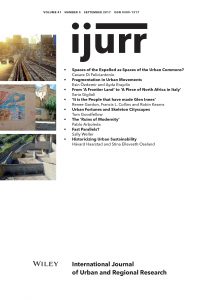Asserting the need to acknowledge the role of the current crisis and austerity politics in fostering the re-emergence of squatting initiatives in Rome, this article brings together the literature on squatting as an urban social movement, notably Martínez López’s holistic approach, with a political economy perspective analysing the current stage of ‘late neoliberalism’. In so doing, I use the conceptualization of ‘expulsions’ developed by Sassen to show how emerging squatting initiatives in Rome represent the ‘spaces of the expelled’. Focusing on the case of Communia in San Lorenzo neighbourhood, the article shows how Martínez López’s approach is able to account for the rapid success and support enjoyed by Communia, going as it does beyond the ‘single-issue’ perspective that has dominated much of the squatting literature. Indeed, the main claims addressed by Communia activists concern a plurality of issues grouped around the concept of urban commons, as both a practice and a goal. Methodologically, the article is the result of 18 months of fieldwork based on an activist/participatory action research (PAR) approach, comprising participant observation/observant participation, in-depth interviews and questionnaires.
Details
Written by:
Cesare Di Feliciantonio
Digital Object Identifier (DOI)
10.1111/1468-2427.12513
About DOI

